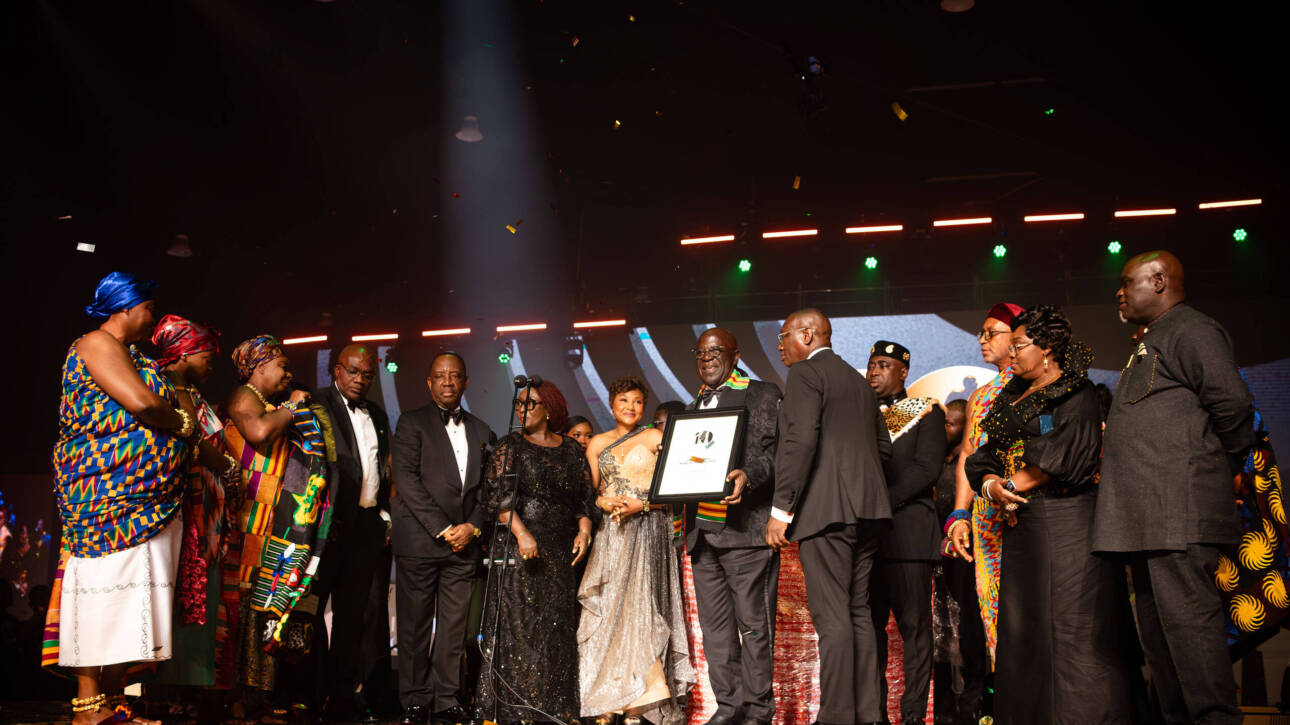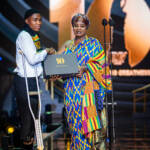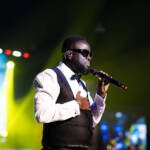A DECADE IN THE MAKING: THE 10TH EMY AFRICA AWARDS
New Issue, New Era
There was a certain composure to the Grand Arena on Saturday night. Not the theatrical kind, but the quiet assurance that gathers when people of influence, discipline and consequence enter a room with purpose. The 10th EMY Africa Awards unfolded within that atmosphere, a decade after the idea first took shape, now matured into a refined celebration of the individuals who continue to shape the continent’s story.
The room held its own kind of gravity. Statesmen moved without fuss. Creatives greeted one another with the unhurried confidence of people who know their work will outlive the moment. Younger talents watched closely, aware they were standing in a lineage with responsibility attached to it. The Awards have always been a catalogue of influence, but this edition felt like the archive had widened, matured and deepened.

At the pinnacle of the night was Sir Sam Jonah, named Man of the Year (Man of the Decade). His recognition carried the calm weight of a lifetime spent shaping policy, industry and leadership across the continent. Afi Amoro received Woman of the Year, a nod to a creative force whose discipline and vision helped build an entire industry. Their presence anchored the evening, setting the tone for a roster of honourees whose accomplishments reflect the breadth of modern African achievement.
Rev. Dr. Chris Tsui Hesse received the Lifetime Achievement Award, a moment that drew warm applause for a man whose quiet mastery helped shape Ghanaian cinema. The Continental Icon Award was shared by Anthony Baffour and Marcel Desailly, two figures whose careers continue to remind the continent of what excellence looks like when pursued with consistency. Dr. Osei Kwame Despite received the Special Recognition Award, a salute to influence carried not through noise but through endurance and enterprise.
Talent in its rising form stood tall as well. Mathew Asanpambilla Agambire, known widely as Bondaana, was named Discovery of the Year, his work signalling a new creative frontier. Aisha Ayensu and Richard Nii Armah Quaye took home the Young Achiever honours, each emblematic of a generation that blends ambition with a clear sense of identity. In the arts, Thapelo Mokoena emerged as Actor of the Year, while Gregory Bortey Promise Newman, known to most as King Promise, carried Man of the Year in Music with characteristic ease.
Design, humanitarian work, courage, innovation and leadership were all given their due. Kusi Boye Doe was honoured as Designer of the Year. Ibrahim Oppong Kwarteng received the Humanitarian Award for service marked by compassion rather than ceremony. Gilbert Ampiah was acknowledged as Man of Courage. Seth Donkor was recognised for his work in technology, while Theophilus Nii Kpakpo Allotey led the sports category. Ambiance by Talata stood out as Brand of the Year, and McKingtorch Africa received the Green Corporate Star Award for work at the intersection of sustainability and community.
Even the performances carried their own narrative arc. Joe Mettle opened with a gentleness that settled the room. Efya followed with vocals that glided across the hall with deliberate restraint. Ofori Amponsah shifted the mood into something shared and familiar, a reminder of the music that has shaped decades of memory. Adina brought one of the night’s most striking moments with a tribute to Daddy Lumba and to the leaders and legends Ghana lost during the year. Samini closed with a surge of energy that felt both celebratory and symbolic, the kind of performance that seals an evening rather than simply ending it.
What emerged, by the time the final applause faded, was a portrait of African achievement that is sophisticated, measured and deeply assured. Ten years in, the EMY Africa Awards has become a ledger of influence, a staging ground for generational shifts, and a reminder that honour, when done well, is its own kind of cultural record.
Here are the full list of the 10th anniversary cohort:
- Sam Jonah, Man of the Year (Man of the Decade)
- Afi Amoro, Woman of the Year
- Rev. Dr. Chris Tsui Hesse, Lifetime Achievement Award
- Anthony Baffour, Continental Icon Award
- Marcel Desailly, Continental Icon Award
- Dr. Osei Kwame Despite, Special Recognition Award
- Tanal Ghanadour, Settler Award
- Dr. Samuel Ato Duncan, Asclepian Award (Man of the Year – Health)
- Mathew Asanpambilla Agambire (Bondaana), Discovery of the Year
- Ibrahim Oppong Kwarteng, Humanitarian Award
- Kwabena Dwumfour, PAV Ansah Communicator Award
- Kusi Boye Doe, Designer of the Year
- Gilbert Ampiah, Man of Courage
- Mfantsipim Old Boys Association (MOBA), Group of the Year
- Nduka Obaigbena, Media Excellence Award
- Ambiance by Talata, Brand of the Year
- Ugochukwu Omeogu, The Guardian Award
- Thapelo Mokoena, Actor of the Year
- McKingtorch Africa, Green Corporate Star Award
- Aisha Ayensu, Young Achiever (Female)
- Richard Nii Armah Quaye, Young Achiever (Male)
- Frank Kwakye Jnr., Creative and Support Arts Award
- Prof. Sampson Effah Apraku, Magnate Award
- Fabris Mulindi, Youth Change Maker Award
- Gregory Bortey Promise Newman (King Promise), Man of the Year – Music
- Seth Donkor, Man of the Year – Technology
- Theophilus Nii Kpakpo Allotey, Man of the Year – Sports
- Dr. Akin Faminu, Man of Style


















